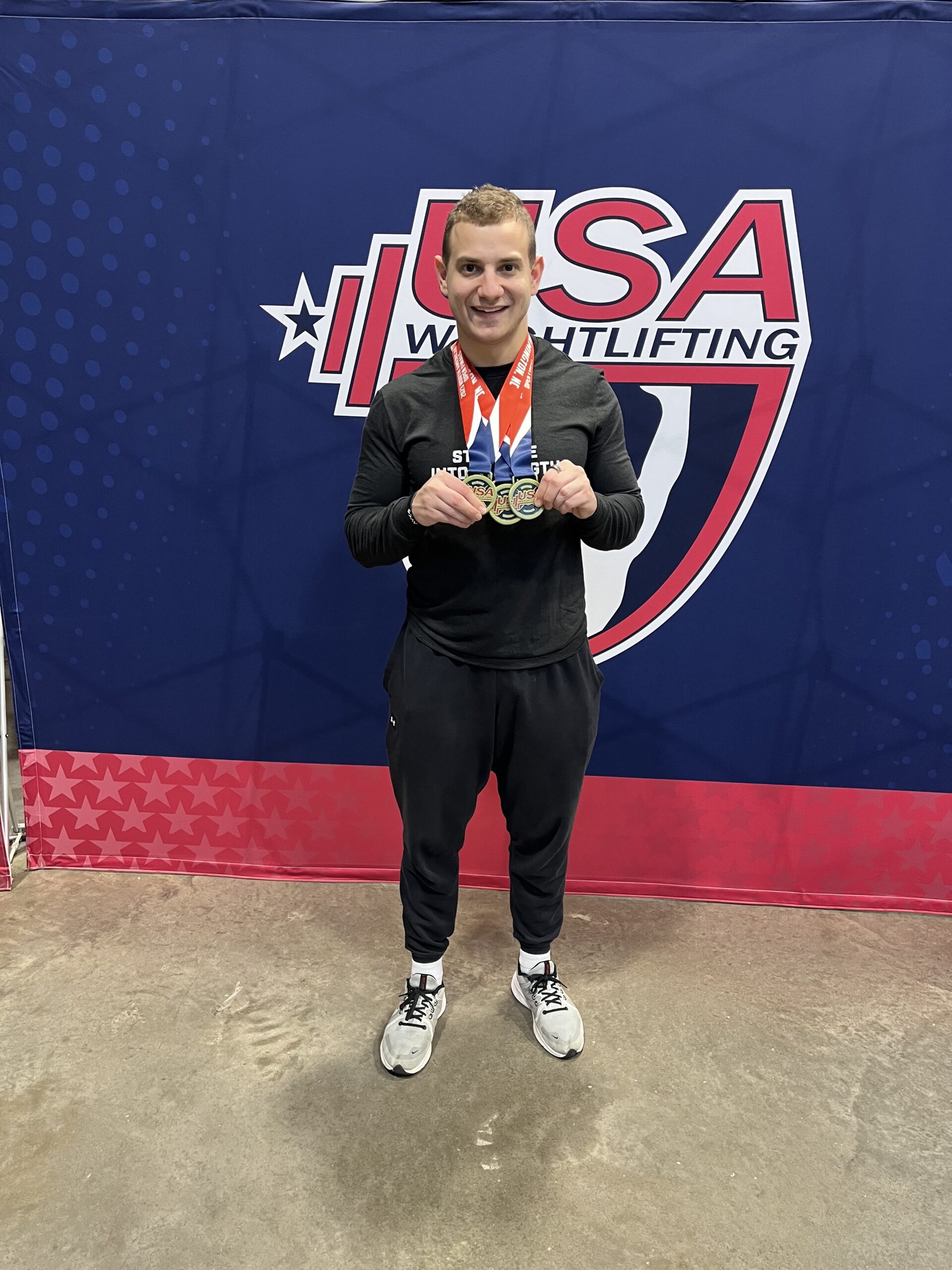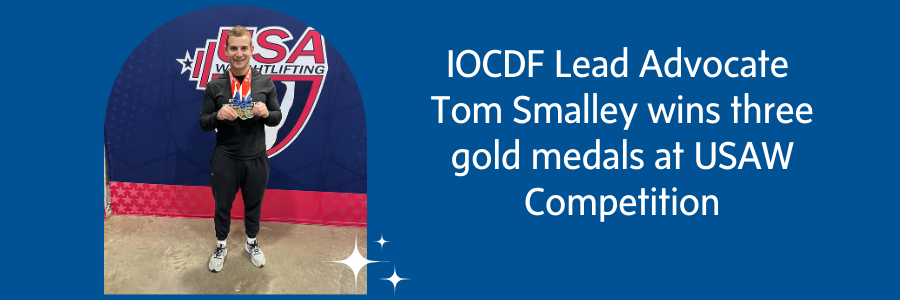IOCDF Lead Advocate Tom Smalley just returned from the USA Weightlifting American Open Finals, where he won three gold medals. The IOCDF caught up with Tom to talk about his victories and the special category in which he competed.
“It felt pretty amazing,” IOCDF Advocate Tom Smalley said of the moment he felt the weight of a gold medal placed around his neck.
“I’m thinking about 10 years ago when I was 16 years old and had to stop playing sports because of my OCD. This is not an experience I ever thought I'd have,” Smalley said.
“I think the biggest win was showing up and doing it for the people that have believed in me when I didn’t believe in myself,” Smalley said, describing the experience as “incredible.”
Smalley earned his three medals in the Adaptive Athlete Division, a relatively new category to the USAW.
To qualify for the Adaptive Athlete Division, according to the USAW, “an athlete must have a disability ‘defined by the ADA as a physical or mental impairment that substantially limits one or more major life activities, a person who has a history or record of such an impairment, or a person who is perceived by others as having such an impairment.’ Athletes must meet a minimum qualification total equal to 50% of the qualification standards set by USA Weightlifting.”
As Smalley describes it, “USAW created this adaptive category to try to level the playing field.”
“Big shout out to Samantha Love, who's an adaptive athlete. She's really been pushing it and has kind of been the driving force behind it,” Smalley added, noting that there’s definitely work that needs to happen to further the division's growth.
“But I think the more we show that this is a thing and an option for people that want to compete, I think the more it's going to grow and that's kind of what I want to do is show people that this is an option,” Smalley said.
Smalley said that there’s a lot of work to be done in promoting and creating awareness around the division, but the more people like himself and Love promote it, ”I think it's going to grow because there's a lot of people in my position too, that I don't think realized that they could do what I'm doing.”
“I think there's just not an awareness of it yet,” Smalley said. “But it's a really, really great thing that USAW is doing to create it.”
Smalley is the first athlete with OCD to compete in the division, something he notes is incredibly special.

“I try to represent the community every day,” Smally said. “Being an athlete at a national level, it’s something I never thought I’d be.”
For Smalley, showing others what is possible is just as much a victory as earning gold.
“That’s kind of the the message that I want to portray in my life is that, no matter what, we can do hard things and we can follow the dreams that we have, the ambitions we have, and OCD doesn't need to define us and take those away,” Smalley said.
When it comes to advice he would give others looking to navigate being an athlete with OCD, Smalley offered, “give yourself grace.”
“Be proud of yourself that you’re there and you’re showing up.”
“You want to do your best every time you step out in competition. But give yourself some grace to understand the situation and that showing up is a win. And that's not just, you know, at a national competition that's showing up to the gym to train, it's showing up to the field to practice on a random Tuesday.”
“I think just celebrating small wins is a huge, huge thing with OCD in life and also being an athlete with OCD as well.”
Smalley’s competition was not without its challenges. One major hurdle he faced was with his medications. While the SSRI he takes was approved for competition, the stimulant that’s a part of his treatment regimen was rejected by the USADA.
“A big thing for me was like, okay, you're going to create this adaptive category to level the playing field, but then I'm not going to be able to take what I need to function daily, and perform at my best” Smalley said.
“I think the process just needs to be changed,” Smalley said, noting how the process of trying to get his medications approved was a trying, at times intrusive, task.
“I just think that there's some flaws in the system for sure that I hope I can bring light to,” Smalley said.
“I'm hoping when we go to the next national competition in Columbus, Ohio, that we can appeal that decision for my medication,” Smalley said.
Smalley’s next competition is the USAW American Open Series taking place in March.


Leave a Reply